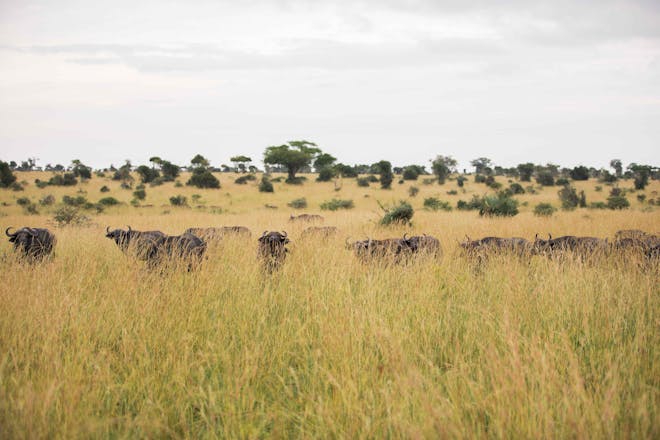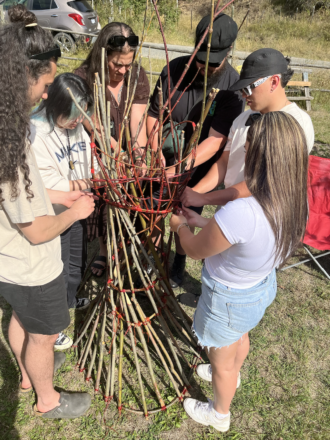Honoring Orange Shirt Day: A Commitment to Truth and Reconciliation
Every year on September 30th, we honor Orange Shirt Day and the National Day of Truth and Reconciliation, a day dedicated to reflecting on the painful legacy of the residential school system and supporting the ongoing journey of Truth and Reconciliation. This day reminds everyone that Every Child Matters and provides an opportunity for non-Indigenous people to learn about the systemic experiences of Indigenous people, families, and communities across Canada.
It is a time for the world to listen to the stories of survivors, educate themselves about the history of these institutions, and take meaningful steps toward understanding the impacts of colonialism. By wearing orange, we symbolize our commitment to remembering the children who never returned home from residential school and acknowledging the survivors who carry those memories with them.
But this day is about much more than just donning an orange t shirt in solidarity. Non-Indigenous people should recognize that there has been no tangible movement on implementation of the Truth and Reconciliation’s 94 Calls to Action. In fact, only 13 of the 94 TRC Calls to Action have been completed.
No matter who you are, or what your position is in society, you can engage in truth and reconciliation in a meaningful way.
The most important thing an individual can do is to listen and learn from the Indigenous peoples and communities around you. Educate yourself first as to the history of Indigenous relationships with Canada so that Indigenous people are not burdened with the labor of educating you, and then seek out ways to incorporate this new knowledge into your professional and personal lives in ways that actively pushes forward towards achieving these Calls to Action.
We cannot put this off. The task is huge, the journey will be long, but that is our responsibility.
On this National Day for Truth and Reconciliation, let us collectively stand in solidarity, reflect, and take action toward fostering a future centered in healing, justice, and reconciliation for all Indigenous peoples across Turtle Island and around the world.
Learning more about Orange Shirt Day and the National Day of Truth and Reconciliation
Resources on this page may contain discussions or representations of trauma which could be painful for readers/viewers – please exercise care. If you or someone you know needs help, please reach out to the following supports:
- 24-hour National Indian Residential School Crisis Line: 1-866-925-4419
- 24-hour KUU-US Crisis Line: 1-800-588-8717
- Indian Residential School Survivors Society: 604-985-4464 or 1-800-721-0066
National Center for Truth and Reconciliation
To address the legacy of residential schools and advance the process of Canadian reconciliation, the Truth and Reconciliation Commission created the 94 Calls to Action. The center believes in reconciliation through education and provides resources where you can learn more about the reality of residential schools and the survivors.
Truth and Reconciliation 94 Calls to Action Explained
This resource created by Jeneen Herns Jensen on behalf of TRU’s Canadian Undergraduate Research Network, explores the the Truth and Reconciliation 94 Calls to Action. A large document, this post helps cover what the Truth and Reconciliation 94 Calls to Action are, how can we better engage with them, and more!
Orange Shirt Society
The Orange Shirt Society provides a selection of resources and ideas to help you understand and plan Orange Shirt Day, the Residential School System of Canada, and much more.
Orange Shirt History – Phyllis’ Story
Discover the origins of Orange Shirt Day through Phyllis Webstad’s powerful story, where her new orange shirt was taken away on her first day at a residential school. This personal experience became a symbol of the intergenerational trauma inflicted by the residential school system and the ongoing work towards reconciliation.
Resource Books
- Books by Indigenous Corporate Training Inc.
- Pathways of Reconciliation: Indigenous and Settler Approaches to Implementing the TRC’s Calls to Action
- Jody Wilson-Raybould – True Reconciliation
- Robin Wall Kimmerer – Braiding Sweetgrass
- Jody Wilson-Raybould – Indian in the Cabinet: Speaking Truth to Power
Other Resources
- Reclaiming Power and Place: The Final Report of the National Inquiry into Missing and Murdered Indigenous Women and Girls
- The United Nations Declaration on the Rights of Indigenous Peoples
- National Centre for Truth and Reconciliation, Education Page
- Reconciliation Canada
- Reconciliation in Action: A National Engagement Strategy
- Indigenous Arts Collective of Canada
- Truth and Reconciliation Commission of Canada: Calls to Action
- Canada School of Public Service – Working with Indigenous Communities: A Guide to Cultural Protocols
- Draft Principles that Guide the Province of British Columbia’s Relationship with Indigenous Peoples
- Terminology in Indigenous content
- Len Pierre Consulting Podcast – Transformative Territory Acknowledgements





